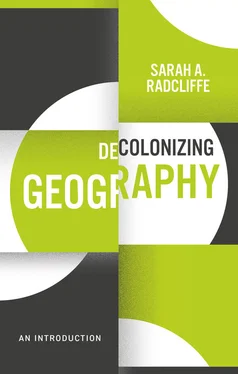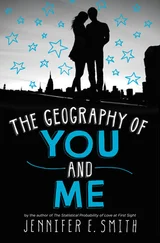74 56
75 57
76 58
77 59
78 60
79 61
80 62
81 63
82 64
83 65
84 66
85 67
86 68
87 69
88 70
89 71
90 72
91 73
92 74
93 75
94 76
95 77
96 78
97 79
98 80
99 81
100 82
101 83
102 84
103 85
104 86
105 87
106 88
107 89
108 90
109 91
110 92
111 93
112 94
113 95
114 96
115 97
116 98
117 99
118 100
119 101
120 102
121 103
122 104
123 105
124 106
125 107
126 108
127 109
128 110
129 111
130 112
131 113
132 114
133 115
134 116
135 117
136 118
137 119
138 120
139 121
140 122
141 123
142 124
143 125
144 126
145 127
146 128
147 129
148 130
149 131
150 132
151 133
152 134
153 135
154 136
155 137
156 138
157 139
158 140
159 141
160 142
161 143
162 144
163 145
164 146
165 147
166 148
167 149
168 150
169 151
170 152
171 153
172 154
173 155
174 156
175 157
176 158
177 159
178 160
179 161
180 162
181 163
182 164
183 165
184 166
185 167
186 168
187 169
188 170
189 171
190 172
191 173
192 174
193 175
194 176
195 177
196 178
197 179
198 180
199 181
200 182
201 183
202 184
203 185
204 186
205 187
206 188
207 189
208 190
209 191
210 192
211 193
212 194
213 195
214 196
215 197
216 198
217 199
218 200
219 201
220 202
221 203
222 204
223 205
224 206
225 207
226 208
227 209
228 210
229 211
230 212
231 213
232 214
233 215
234 216
235 217
236 218
237 219
238 220
239 221
240 222
241 223
242 224
243 225
244 226
245 227
246 228
247 229
248 230
249 231
250 232
251 233
252 234
253 235
254 236
255 237
256 238
257 239
258 240
259 241
260 242
261 243
262 244
263 245
264 246
265 247
266 248
267 249
268 250
269 251
270 252
271 253
272 254
273 255
274 256
275 257
276 258
277 259
278 260
279 261
280 262
281 263
282 264
283 265
284 266
285 267
286 268
287 269
288 270
289 271
290 272
291 273
292 274
293 275
Decolonizing Geography
An Introduction
Sarah A. Radcliffe
polity
Copyright © Sarah A. Radcliffe 2022
The right of Sarah A. Radcliffe to be identified as Author of this Work has been asserted in accordance with the UK Copyright, Designs and Patents Act 1988.
First published in 2022 by Polity Press
Polity Press
65 Bridge Street
Cambridge CB2 1UR, UK
Polity Press
101 Station Landing
Suite 300
Medford, MA 02155, USA
All rights reserved. Except for the quotation of short passages for the purpose of criticism and review, no part of this publication may be reproduced, stored in a retrieval system or transmitted, in any form or by any means, electronic, mechanical, photocopying, recording or otherwise, without the prior permission of the publisher.
ISBN-13: 978-1-5095-4159-1
ISBN-13: 978-1-5095-4160-7(pb)
A catalogue record for this book is available from the British Library.
Library of Congress Control Number: 2021945136
by Fakenham Prepress Solutions, Fakenham, Norfolk NR21 8NL
The publisher has used its best endeavours to ensure that the URLs for external websites referred to in this book are correct and active at the time of going to press. However, the publisher has no responsibility for the websites and can make no guarantee that a site will remain live or that the content is or will remain appropriate.
Every effort has been made to trace all copyright holders, but if any have been overlooked the publisher will be pleased to include any necessary credits in any subsequent reprint or edition.
For further information on Polity, visit our website: politybooks.com
For a World Where Many Worlds Fit
For clarity, key terms appear in bold when first introduced. These terms are explained in the Glossary section. Emboldened references in brackets refer to sections, chapters, figures or textboxes in this book.
As with any piece of academic writing, this book reflects its author and where she stands in the context of social, institutional and geopolitical relations. As such, Decolonizing Geography: An Introduction is deeply situated and is not about decolonizing everywhere. It emerges principally out of Anglophone postcolonial and decolonial geography and Anglophone geographers’ critical engagements with numerous Other geographies and knowledges around the world. As such, the book speaks back to the global predominance of Anglophone geography in former colonial and settler colonial countries where racialization, the westernizing university and settler colonialism operate and are challenged. Brazilian, Mexican, French and Hungarian geographies, to name a few, have different stories to tell. I encourage all readers to think about this book in tandem with the local and regional decolonizing discussions where they live and work.
My position in these geopolitical and intersectional configurations is as a white, cis-gender woman with an Anglo name in an overwhelmingly white British department of geography. My training and experience are in human geography; the department includes human and physical geographers, the vast majority white, especially among faculty. Geographers of colour have argued rightly that geography’s urgent task of decolonizing must not rest solely on racialized minorities. I concur wholeheartedly, and as a white ally stress the importance of white geographers’ informing themselves about decolonizing and anti-racism. The construction of a decolonial pluri-geo-graphy – or a world of many worlds – depends on all of us. Plural decolonizing geographies crucially require white geographers to take responsibility for and actively work to overturn racialized exclusions and assumptions. The knowledge geopolitics behind this book additionally reflect my decades of ethnographic work with Latin American scholars, activists and communities, especially in Andean rural districts and with Indigenous groups, leaders and organizations. It is their critiques, experiences of racism and exclusion, and hopeful agendas for change that enliven this book. In terms of its focus, however, the book is written to be accessible and relevant for physical as much as human geographers. The chapters include physical and human geography examples, discussions, and pointers to further reading. The book was also influenced by events during the Covid-19 pandemic which provided daily reminders of coloniality’s persistence and of decolonizing ripostes such as the Black Lives Matter movement.
The book aims to broaden understanding of why decolonizing matters among instructors and students in geography and cognate disciplines. Chapters 1through 4provide a general introduction addressed particularly to geographers who, like me, are located in westernizing, white-dominated and/or wealthier countries. Chapter 5deals with issues of teaching and learning, while Chapter 6covers research of various kinds, including short student projects. To make the decolonizing framework and approach more accessible, a Glossary at the end of the book provides definitions of terms used in the book. North American, European and Australasian geographies appear throughout, although their tertiary education systems and terminologies vary. I have tried to avoid too many British-isms! Across these regions, geographers differ in whether and how they self-identify in racial-ethnic and territorial terms; I provide this information where available but cannot do so consistently. This book addresses exciting and rapidly moving debates which shift as activism and scholarship consider important dimensions related to colonialism. This context emphasizes the urgency for geography and geographers to change their approaches, materially and on short time scales. So, while reading this book, I encourage readers to put it into conversation with blogs, non-academic writings, activism and news stories that speak to decolonizing issues where you stand. Finally, in an introductory textbook it was inappropriate to address structural issues connected to neoliberal colonial academia that systematically influence hiring decisions, promotions, funding streams for research and the colonial biases of journals and peer review. These are crucial issues rightly critiqued in other forums.
Читать дальше












